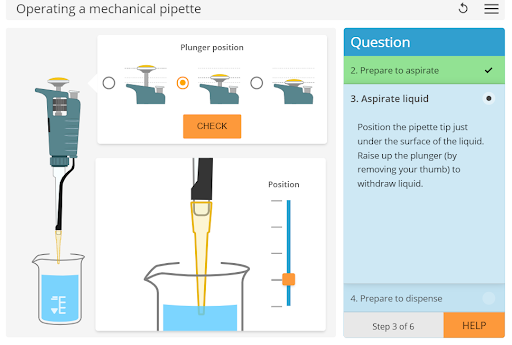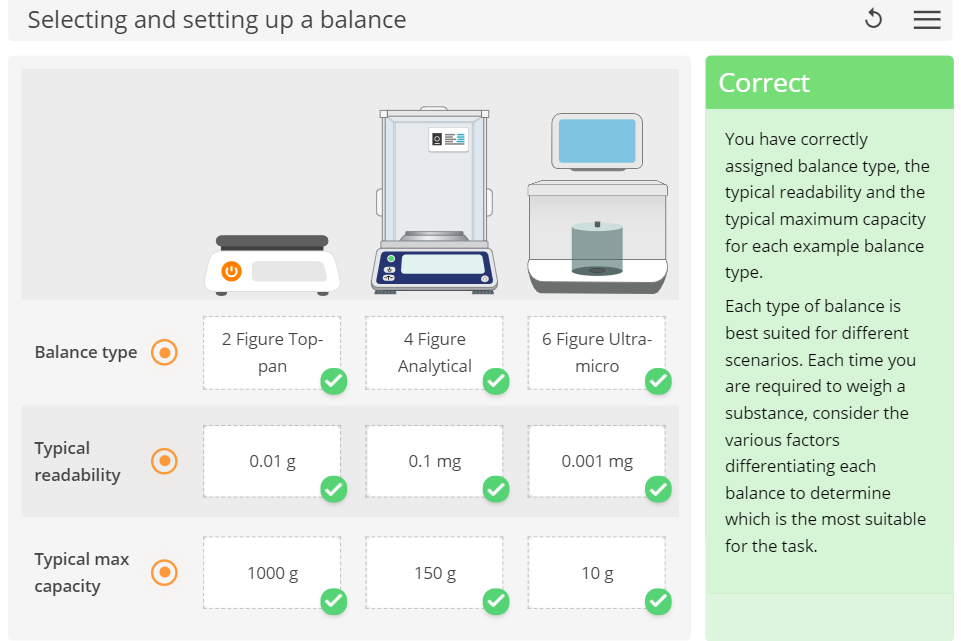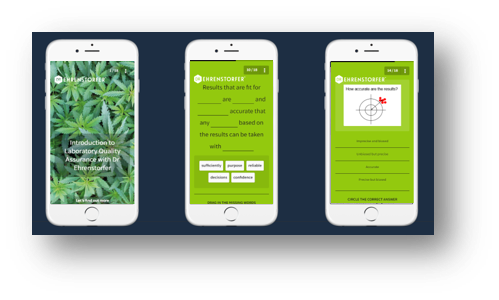
Attracting and retaining an appropriately skilled workforce is fundamental to the UK’s strategic agenda, with chemical and biological measurement underpinning many sectors of the country’s economy. Ensuring results are fit-for-purpose cuts across all measurement disciplines and regulatory frameworks. Equipping scientists with the practical skills required to make accurate measurements for diagnostics, therapeutics, food safety and environmental protection – to name but a few – is essential to maximise the UK’s capabilities across a broad range of industries and sectors.
But how can organisations ensure their staff develop the required practical skills and knowledge while minimising the impact on lab delivery? How can training be engaging when face-to-face courses are not possible? And how can the underpinning knowledge of quality assurance be transferred effectively to the new generation of ‘digital natives’? These are just some of the questions that LGC, a global leader in the life sciences sector and established training provider in laboratory quality assurance, has been addressing in recent months.
Analytical Quality Training Programme
LGC’s established training offering is a programme of courses on key analytical quality topics such as method validation and evaluating measurement uncertainty – important requirements of international standards such as ISO/IEC 17025 and ISO 15189. Until March 2020 this was entirely in-person classroom-based training. Like other training providers faced with restrictions imposed by the pandemic, LGC promptly took the slightly daunting decision to switch to live online delivery. Careful but quick consideration was given to the platforms and pedagogical practices that were needed to get to grips with, in order to deliver the core knowledge in an online environment. With expert training from the Learning and Performance Institute (https://www.thelpi.org) LGC was able to adapt their technical content for virtual delivery; however, this wasn’t just a case of running a course developed for the classroom in exactly the same format online.
Along with getting to grips with new technologies, greater attention needed to be paid to audience engagement and interaction, while still imparting information and transmitting structured knowledge. Running courses as a series of shorter modules rather than day or week-long courses, and making use of interactive tools such as whiteboards, polls and virtual breakout rooms helped LGC to step up to the challenge. Equipping the trainers with the skills to deliver virtual training was also key to the warp speed pivot to online delivery. And as new functionality and tools continue to be developed, LGC will continue to adapt and evolve courses that realise the true potential of virtual delivery.
Now 12 months in, LGC is pleased to report that moving to online delivery has offered both LGC and our customers many benefits, including more flexible scheduling and the ability to deliver courses when travel may not be possible, or geo-politically or economically viable. Feedback on our ever-expanding virtual offering has been very positive and LGC will continue to run online courses alongside face-to-face delivery when it finally returns.
Please visit www.lgcgroup.com/training to find out more about our analytical quality training programme.
A Virtual Learning Environment
A common concern for laboratory managers is the level of practical skills, exposure to quality requirements and critical thinking that new employees will possess. Generating reliable measurement results relies on having staff with a core set of practical skills. A typical training plan for a new recruit might involve reviewing standard operating procedures and observing colleagues, before finally practising key techniques and undergoing a competency evaluation. This approach can be time-consuming and, to be frank, a little dull. Consider instead interactive material that covers the use of essential laboratory equipment such as balances and pipettes, and the associated quality considerations, that can be studied away from the expensive apparatus – this is what a virtual learning environment (VLE) can provide!
Praxis – analytical measurement eLearning
In collaboration with Learning Science (https://learningscience.co.uk), the UK’s National Measurement Laboratory (NML-hosted by LGC) (www.lgcgroup.com/nml) has developed Praxis an interactive web-based course providing engaging and cost-effective training on practical skills for analytical scientists. Whether training new staff or providing refresher training, Praxis allows users to develop their practical skills at their own pace and apply their understanding to real-life scenarios before stepping into a laboratory.
The course contains modules on the measurement of mass, volume and pH, and solution preparation – essential skills relevant to a wide range of sectors and educational levels. Users receive consistent auditable expert training while reducing the teaching burden and minimising disruption to laboratory operations.
For further information on Praxis, visit https://praxislearn.co.uk/.
Fig 1 and 2 pic caption: A virtual learning environment such as Praxis allows analysts to practice core practical skills before entering the laboratory


CannLearn – microlearning modules for testing labs
Whilst Praxis provides an effective knowledge transfer route, there is also a place for shorter ‘bite-sized’ learning to introduce topics, provide refresher training or allow additional practice. The third strand of LGC’s digital knowledge and skills exchange activities is the development and delivery of app-based microlearning that is available anywhere anytime across a range of devices. Our initial pilot – ‘CannLearn’ – has been developed in collaboration with Dr Ehrenstorfer (www.lgcstandards.com) to support cannabis testing laboratories in the United States. This highly interactive content will be available via an intuitive app and cover key topics related to the testing of cannabis plants and products, and laboratory quality assurance. Highly gamified, learning points are reinforced by quizzes and competitions to deliver an engaging learning experience.
Fig 3 pic caption: Interactive app-based microlearning allows the dissemination of key information anywhere anytime

Restrictions caused by the coronavirus pandemic have obviously necessitated rapid changes across many aspects of our personal and professional lives. Access to high-quality content delivered via a suitable VLE is essential to supporting the development and sustainability of the analytical sector. However, the demonstrable benefits of digital learning mean that training providers must continue to offer alternatives to face-to-face training even after COVID-19. In Dr Julian Braybrook’s view (Government Chemist & Director of the National Laboratories at LGC),
“There is no ‘one size fits all’ model for knowledge and skills exchange. Having content available via a range of complementary delivery options is essential to supporting organisations build fit for purpose training programmes for staff at all stages of their careers.”
BMTA members receive a massive 15% discount on LCG training booked through the Association.
